The world economy was in the snail phase during pre-COVID19, the demands were plateauing. China's appetite was definitely approaching flat phase and also the other parts in the world. IR4.0 was thrown in, whereby labor intensive will affected, thus all this factors were already in motion pre-COVID19.
Now, COVID19 has fast forwarded graph plot, and we are facing economy recession, how bad it is? How many countries will be affected? etc..
Fresh graduates, they have a few situations to prepare for it:
1. Lament and cry over the predicament they will be baptised soon
2. Prepare resumes and apply for whatever job placements available
3. Look for windows of opportunities and prepare for it
Now, allow me to narrate some interesting real life adaptation which i came accross during the lockdown phases.
Thailand as we know, depends highly on Tourism sector for its economy, thus thats the worst hit. The write up i came accross, was about a pilot, an air stewardess and an aircraft engineer.
The pilot, transformed into a grab rider to deliver food to survive, and the air stewardess decided to rely on her extra skills and opened a saloon. The aircraft engineer, decided to start on airconditioning services.
Now analysing the above situation:
1. The pilot used his asset for another opportunity.
2. The air stewardess used her extra skill to survive and create opportunity.
3. The aircraft engineer, must have learned the skill or he had prior experience and grabbed the window of opportunity.
All above did not cry over their predicament and adapted immediately to the situation. The aircraft engineer has my best scores, WHY? During lockdown, WFH and movement control phases, people were staying in home most of the time. In Wuhan even after lockdown phases, the malls were still empty as the fear still lingered on. This if we look into, air condition usage will have its spike, more usage more service. Thus, the aircraft engineer has made a good decision jumping into this niche (im not sure if he saw this and decided but im assuming he did so)
Now, coming back to our fresh graduates, look and reflect at yourselves, what skills you need or you have?, what assets are available to you?, do a simple ground analysis. Find out available opportunities, available demands work on this.
- If you need to use the web, map out the skills needed to venture into the new opportunity.
- If you are going to jump into hydroponic sector, list out the needfuls.
- If you still insist in getting a job, do a thorough analysis on the company's required additional skills.
- If you want to wait out the recession phase, look into postgraduate studies, plot out future demands and jump into that niche of studies.
I end this write up with a quote from Charles Darwin....
"It is not the strongest of the species that survives, nor the most intelligent that survives. It is the one that is the most adaptable to change."





















